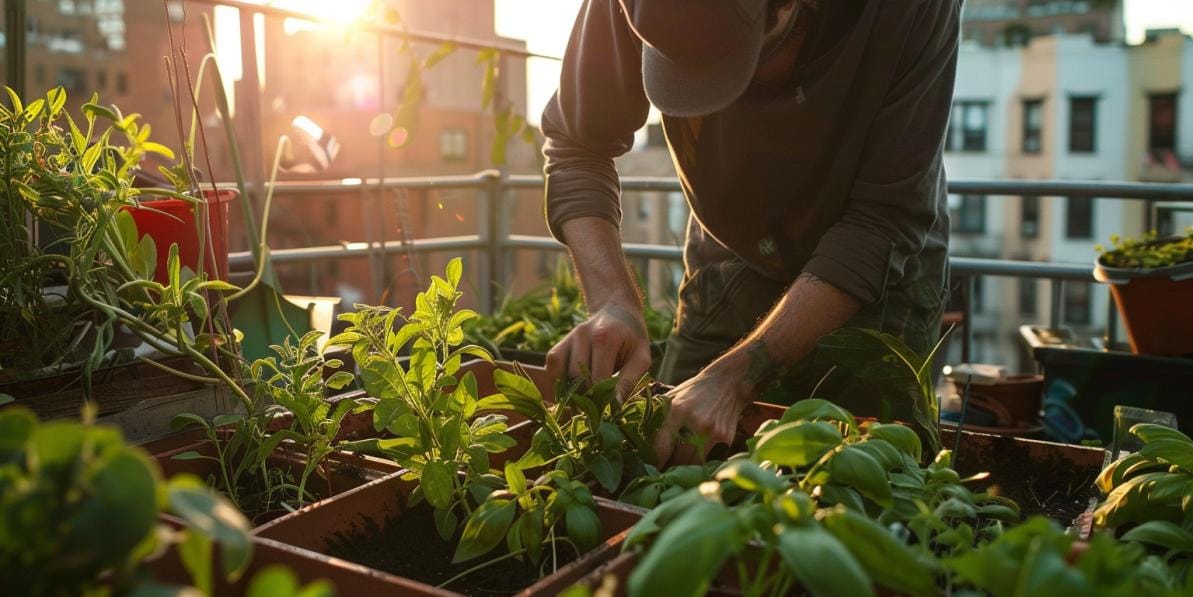- White Rabbit
- Posts
- 11 smart food prep hacks
11 smart food prep hacks
Get most out of your food
"Do what you can, with what you have, where you are" Theodore Roosevelt.

How to improve food quality?
We all understand that there is no completely healthy food nowadays. Today we'll discuss how to improve the nutritional value and quality of food, to make it at least a little better, as much as possible in our reality.
So what can we do right now? Save these notes.
Grass-fed beef has a more favorable fatty acid composition, including higher levels of omega-3 fatty acids and a lower ratio of omega-6 to omega-3 fatty acids. This nutritional profile is linked to various health benefits, such as reduced inflammation and lower risk of chronic diseases.
Choose organic products. They are non-GMO, grown without chemical pesticides, and have lower nitrate levels.
Eat seasonal foods typical for your area. Seasonality plays a very important role in a food's nutritional value for our bodies. It's not necessary to eat foods not native to where you live, striving for variety. There is good scientific research on this by Weston Price.
Get rid of all non-stick, aluminum, and plastic food containers. Don't store food in plastic or polyethylene. If using food wrap is necessary, change it daily. Mold starts growing on food wrap first, even with fresh products! Plastic is especially harmful for acidic, hot foods.
Soak foods. You can soak almost anything! This reduces the concentration of substances in the food, sometimes good ones too. What must be soaked? All legumes (lentils, chickpeas, mung beans, peas, etc.), nuts, and grains (except white rice and buckwheat). After soaking, drain the water, rinse, and cook in fresh water. You can add 1 tbsp apple cider vinegar to the soaking water.
Soak greens, veggies, and fruits in salt water or water with baking soda. This cleans the outside of the produce, not just chemicals but also various parasites living on any food.
Ferment foods. Fermentation increases:
boosting the food's biological value
Pay special attention to fermenting grains. I'll write about this delicate topic in future articles.
Discard the first broth if your meat or fish is of questionable quality. You can cook it in water, discard that liquid, and finish cooking by any convenient method.
Use a food ozonator. As stated by manufacturers, it kills pathogens on food surfaces and even breaks down some chemicals (pesticides, antibiotics, etc.). The device only cleans the surface but that still helps.
Use cooking methods that preserve the most nutrients, like steaming and blanching.
Consider your individual food preferences. If broccoli tastes good to you, it's healthy, but if you find it disgusting, it won't provide any benefits. The food you eat should taste good and be enjoyable.
Choose the best, do your best, and don't stress too much!
Some interesting facts to ponder:
For Arctic peoples, a half-year-old decaying walrus or reindeer carcass from a swamp is a delicacy, while for most others it would be deadly poisonous due to the rotting toxins.
On the other hand, alcohol is very dangerous for northern peoples who easily become alcoholics, while for Mediterranean peoples, alcohol is much less harmful. Per capita alcohol consumption in Italy is not much lower than in northern countries, but while alcoholism is a huge problem in the north, it barely exists in Italy.
Most Asians are lactose intolerant, while it's much rarer among Western European peoples. These simple, well-known facts should logically lead to the conclusion that the basis of healthy eating lies in consuming locally-grown, seasonal foods from your area.
Click below to explore the awesome newsletters 👇
I appreciate your time. You can unsubscribe if this isn't your content or if you wish to stop receiving my newsletter. No hard feelings! |
Each mindful small step today will become a giant leap for your well-being tomorrow.
Warm regards,
Kos
Important: This newsletter is for educational purposes only. It does not offer medical advice or a solicitation for purchases. Always consult a professional for medical decisions. We may earn commissions from links marked with an asterisk (*) through affiliate programs. We only support brands we believe in.
Reply